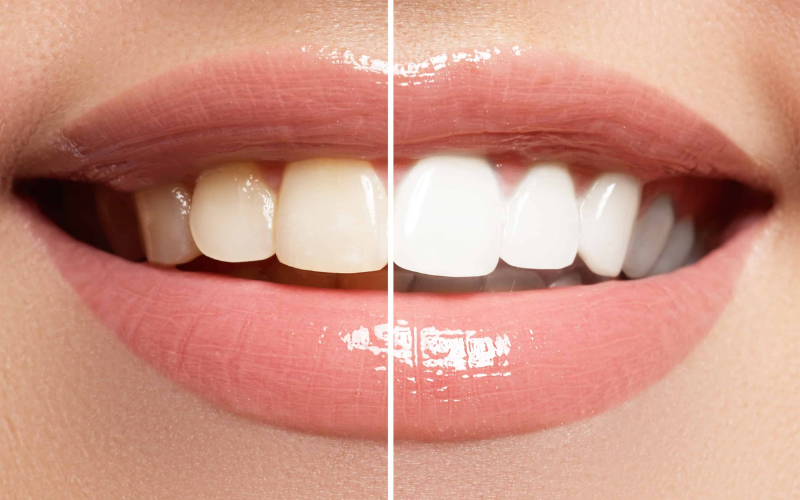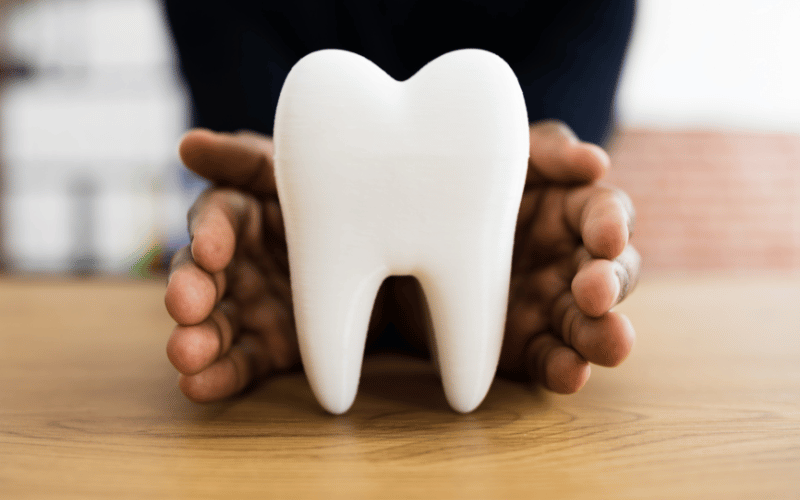1520 Green Oak Place, Suite B Kingwood, Tx 77339
Does Hydrogen Peroxide Whiten Teeth?

The desire for whiter teeth has made teeth whitening products highly popular, as a bright smile is often associated with health and attractiveness. Over-the-counter whitening strips, gels, and professional treatments are widely used, driven by the appeal of enhancing one’s appearance. Hydrogen peroxide is frequently mentioned among home remedies due to its effectiveness in bleaching teeth. Known for its antiseptic properties, hydrogen peroxide is readily available and offers a cost-effective option for those seeking whiter teeth without expensive treatments. However, its safety and efficacy require careful consideration to avoid potential adverse effects.
What is Hydrogen Peroxide?
Hydrogen peroxide (H₂O₂) is a chemical compound of hydrogen and oxygen. It is a clear, colorless liquid commonly used for its antiseptic and disinfectant properties. In various concentrations, it serves multiple purposes, including wound cleaning, hair bleaching, and as an ingredient in household cleaning products.
As a bleaching agent, this compound whitens teeth through an oxidation process. It breaks down into water and reactive oxygen molecules when applied to teeth. These oxygen molecules interact with the stains on the teeth, breaking the chemical bonds that hold stain particles, effectively lifting and removing discoloration. Consequently, hydrogen peroxide is a key ingredient in many commercial teeth whitening products, such as strips, gels, and professional dental treatments, due to its proven effectiveness in lightening dental stains.
Effectiveness In Teeth Whitening
1. Proven Whitening Results: Numerous studies have demonstrated that hydrogen peroxide effectively whitens teeth. Its ability to break down and remove surface and deeper stains has made it a popular choice in over-the-counter and professional whitening products.
2. Concentration Matters: The effectiveness in whitening teeth is concentration-dependent. Higher concentrations typically yield quicker and more noticeable results, although they may also increase the risk of side effects such as tooth sensitivity and gum irritation.
3. Duration of Use: The duration for which hydrogen peroxide is applied to the teeth impacts its whitening effectiveness. Longer application times, within safe limits, generally enhance whitening results by allowing more thorough stain removal.
4. Combination with Other Ingredients: In commercial whitening products, hydrogen peroxide is often combined with other ingredients, such as carbamide peroxide. These combinations can enhance the overall whitening effect and improve the product’s stability and ease of use.
5. Professional vs. At-Home Treatments: Professional treatments administered by dentists typically use higher concentrations of H₂O₂ and can achieve more dramatic results in a shorter period than at-home products. However, at-home treatments with lower concentrations are also effective, particularly when used consistently.
Limitations of Hydrogen Peroxide Whitening
1. Tooth Sensitivity: One of the most common limitations is increased tooth sensitivity. This can occur during or after treatment, especially with higher concentrations or prolonged use, making it uncomfortable for individuals with sensitive teeth.
2. Gum Irritation: Hydrogen peroxide can cause irritation or chemical burns to the gums and other soft tissues in the mouth. Careful application is necessary to avoid contact with these areas, and improper use can lead to painful and potentially damaging side effects.
3. Effectiveness on Different Stains: While hydrogen peroxide is effective on many types of stains, it may not work as well on certain types of discoloration, such as those caused by medications (e.g., tetracycline stains) or intrinsic stains within the tooth enamel. In such cases, alternative whitening methods may be required.
4. Potential for Overuse: Overusing hydrogen peroxide whitening products can lead to enamel erosion, weakening teeth, and increasing the risk of cavities and other dental issues. It’s important to follow recommended guidelines and avoid excessive use.
5. Temporary Results: The whitening effects are not permanent. Teeth can become re-stained over time due to diet, smoking, and other lifestyle factors. Maintenance treatments are often necessary to preserve the whitening results, which can be inconvenient and costly.
Safety Considerations of Using Hydrogen Peroxide
Using hydrogen peroxide for teeth whitening carries potential risks if misused, including gum irritation, enamel erosion, and increased tooth sensitivity. To minimize these risks, diluting hydrogen peroxide with water before application is essential. This reduces the concentration, making it gentler on the teeth and gums. Consulting a dentist before using hydrogen peroxide is crucial, especially for individuals with pre-existing dental conditions. A dentist can provide personalized advice and ensure the whitening method is safe and effective for your dental health needs. Proper use and professional guidance can help achieve the desired results safely.
Final Words!
Hydrogen peroxide is effective for removing mild stains from teeth when used with proper dilution and caution. Prioritizing dental health is essential, so consulting a dentist ensures safe and optimal results. For personalized advice and professional whitening options, visit Dentist Kingwood. Achieve a brighter, healthier smile with expert guidance. Don’t wait—schedule your consultation today for a radiant smile you’ll love!







